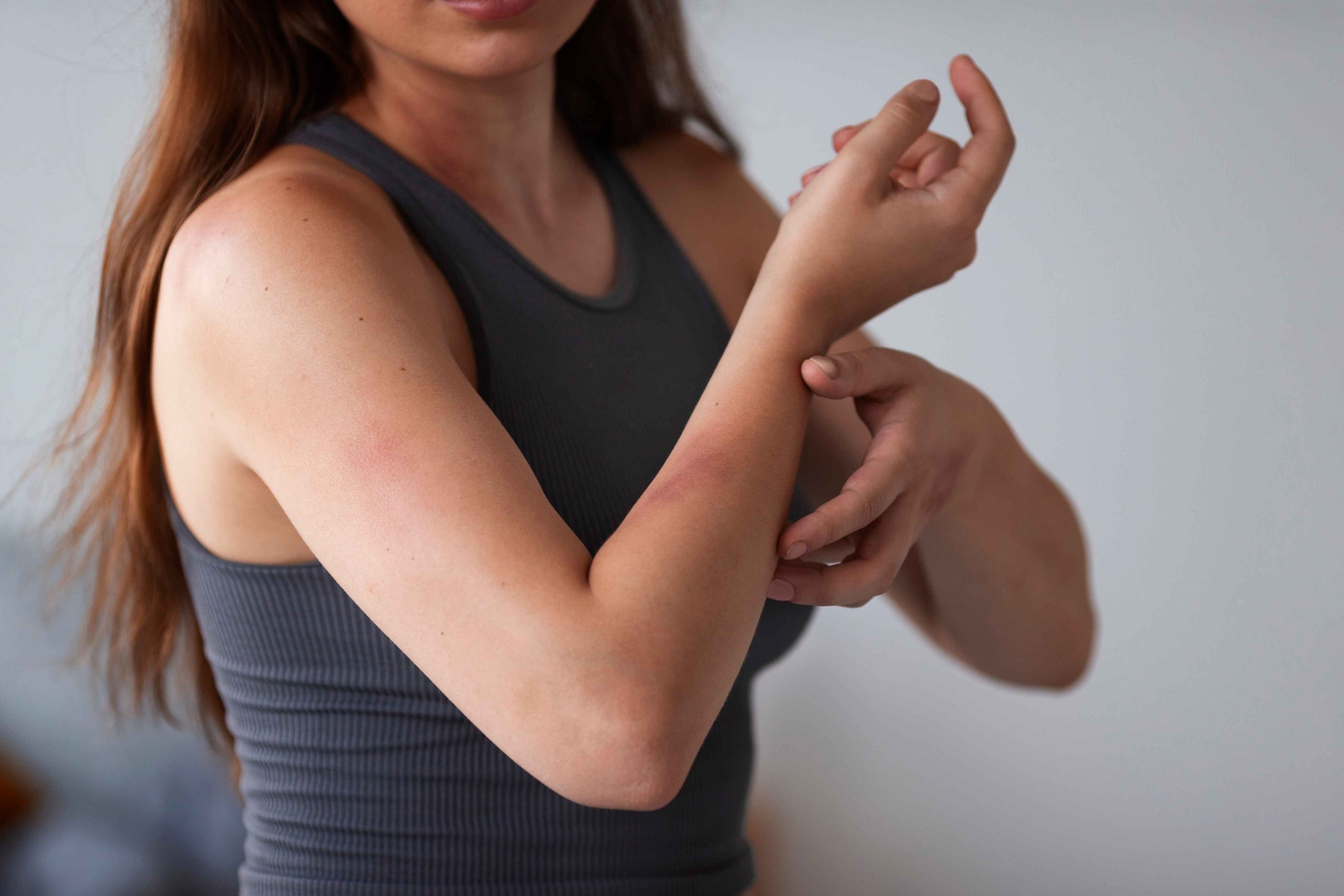Beta-alanine is a popular, natural pre-workout supplement that boosts the existing levels of beta-alanine already in your body, giving you improved endurance and muscle-building for a short period. For all its benefits, though, sometimes using beta-alanine can cause a ‘beta alanine itch.’
Why does beta-alanine make you itch? is it dangerous or just annoying? If you get it, how do you get rid of it? Here are the basics on managing a beta-alanine-caused itch if you suddenly have to deal with one.
What Causes the Beta Alanine Itch?
Beta-alanine is a regular chemical inside your body, meaning you will always have some inside you, even If you are not relying on supplements.
It combines with histidine to create a new substance called carnosine, responsible for improved physical performance and reduced fatigue.
Of course, this means that your body has a standard, stable range of beta-alanine that it is used to. Unlike many artificial supplements, you are not introducing a new chemical to your body that does not already exist. Instead, you are adding more of it.
This can sometimes mean that beta-alanine begins to activate specific neurons in your body, including the ones that cause the famous beta alanine itch.
As long as these neurons keep firing, it will cause a tingling or itching sensation in your skin with no apparent cause, a problem known as paresthesia.
What is the Itch Dangerous?
On its own, the itch is quite literally nothing. There is no direct cause other than specific neurons in your nervous system and brain firing when they should not.
This tricks your body into thinking that you are itching when you are not, meaning you can feel the itch, but there is no physical cause.
This means that it is not actively dangerous because there is little risk behind the itching or tingling itself.
If you can ignore it, the sensation will eventually go away without harming your body.
This paresthesia is more or less completely harmless.
For some people, paresthesia itches can be a sign that beta-alanine has been used correctly since it shows that the body has managed to absorb it properly.
The supplement itself is also safe, so the itch is not going to cover up other more serious problems you might face while using it.
How Do I Handle the Itch?
A beta-alanine itch is not a serious threat, but that does not make it easy to deal with. The itch can quickly become annoying if you are trying to take part in serious workouts. Especially for some people, beta-alanine itch will persist for quite a long period of time.
Since the itch is a form of paresthesia, you can’t use creams or ointments to try and deal with it because there is no physical cause behind it.
It is not like a rash, where treatment can eliminate whatever is causing the burning pain because there are no physical symptoms other than your nervous system tricking itself.
Sensitivity varies between people. Some are very susceptible to itching. Other people have never felt it.
Keep this in mind since you might become naturally vulnerable to these itches compared to other people around you.
Food Intake:
In some people, the amount of food you eat before using a supplement can impact the itching. Foods that can directly improve carnosine might also be responsible for particular itches on a smaller scale, but this does not usually cause a significant difference.
Dosage:
The more beta-alanine you take, the stronger the itch will get since your nervous system is being altered more.
Sometimes reducing your beta alanine itch dosage slightly can make the itch more manageable or remove it entirely.
Hydration:
Staying hydrated makes a big difference when you are trying to work with supplements, especially ones that contain beta-alanine. Ensure you drink enough water since this can sometimes help you avoid getting severe itches or tingles that disrupt your exercise routine.
Different Formulas:
There are also some supplements that are simply more likely to cause itches than others, usually due to differences in their formula.
If one is constantly causing you to itch, but another is not, then there might be something in one of the supplements that your body can’t manage properly.
How to Stop Beta Alanine Itch?
While it’s harmless, it can be uncomfortable. Here are ways to reduce or prevent it:
1. Take Smaller Doses
Split your dose: Instead of taking a single large dose (e.g., 3-4 grams), split it into smaller doses (e.g., 1-1.5 grams) spread throughout the day.
Timing: Space the doses a few hours apart to minimize tingling.
2. Use Sustained-Release Formulations
Opt for sustained-release beta-alanine supplements, which release the compound gradually, reducing the intensity of the tingling sensation.
3. Pair with Food
Take beta-alanine with a meal or snack to slow absorption and reduce paresthesia.
4. Lower the Initial Dose
If you’re new to beta-alanine, start with a lower dose (0.8–1 gram) and gradually increase it over time as your body gets used to the supplement.
5. Try an Alternative Supplement
If the itching is too bothersome, consider other supplements that can support performance, such as creatine or citrulline malate, which don’t have the same side effects.
6. Stay Hydrated
Ensure you’re drinking plenty of water throughout the day, as proper hydration can help mitigate some side effects of supplements.
7. Consult a Professional
If the itch persists or is severe, talk to a healthcare provider or a nutritionist to evaluate your supplementation plan.
Wrapping It Up!
That was all about beta-alanine itch and how you can handle it effectively. It is an uncomfortable, albeit curable condition that requires patience and professional consultation.
Consult with your professional to know all about the cause and cure of this condition for you.
Read Also:




























